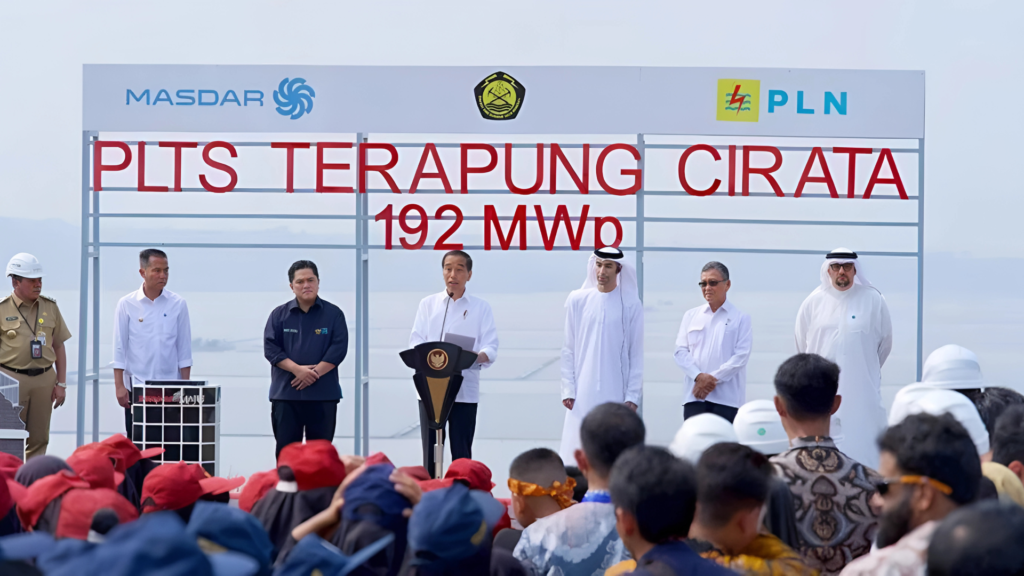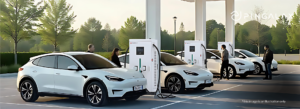Introduction: The Shift Toward Electrification
EV adoption in Indonesia, Southeast Asia’s largest economy, is on the cusp of a major transformation in its transportation sector. With a growing middle class, increasing environmental awareness, and government-backed incentives, the nation is pushing toward greater adoption of electric vehicles (EVs). However, while interest in EVs is rising, the readiness of the infrastructure, consumer mindset, and economic factors remain key challenges that could determine the pace of adoption in 2025.
Based on insights from recent reports on Indonesia’s electric vehicle readiness, we explore the current state, key drivers, and challenges shaping the future of EV adoption in Indonesia.
Consumer Interest vs. Adoption Gaps
A recent PwC report highlights a significant shift in consumer interest toward EV ownership. While only 7% of Indonesians currently own an EV, a promising 78% plan to buy one within the next five years.
This indicates a strong potential market. However, skepticism remains high, with 15% of surveyed consumers hesitant to adopt EVs due to concerns about charging infrastructure, battery longevity, and high upfront costs.
“At Pingalax, we believe that a smart, connected, and efficient EV ecosystem is crucial to accelerating Indonesia’s EV transition.” – Pingalax Indonesia.
Key Drivers for EV Adoption
1. Cost Savings on Fuel and Maintenance
Fuel efficiency is one of the most compelling reasons for Indonesians to consider switching to EVs. Approximately 73% of prospective buyers cite lower fuel costs per kilometer as a key motivator for purchasing an EV.
Compared to conventional internal combustion engine (ICE) vehicles, EVs require less maintenance, eliminating oil changes and complex engine components expenses.
2. Environmental Awareness and Green Initiatives
While economic factors drive most purchase decisions, environmental impact is also gaining importance. According to PwC Report of Indonesia Electric Vehicle Readiness Consumer Insights 2024, 46% of potential buyers prioritize sustainability, recognizing EVs as a cleaner alternative to fossil-fuel-powered vehicles.
Indonesia’s commitment to reducing carbon emissions through renewable energy projects like the Cirata Floating Solar Power Plant aligns with the green energy transition, supporting the government’s target of achieving net-zero emissions by 2060.

3. Increasing Availability of EV Models
The Indonesian market has seen an influx of new EV models, from budget-friendly options to premium brands like Tesla, Hyundai, and Wuling. Additionally, brands like BYD and BMW are setting up dedicated EV charging networks, helping to strengthen Indonesia’s EV ecosystem.(add source: Pingalax presentation)
Barriers to EV Adoption in Indonesia
Despite the positive outlook, several key challenges continue to slow down widespread EV adoption:
1. Charging Infrastructure: The Most Pressing Concern
- 60% of potential buyers worry about charging duration.
- 59% fear limited driving range due to inadequate public charging stations.
- 34% of EV skeptics cite the lack of public charging stations as a deal-breaker.
These figures highlight the urgent need for a widespread and efficient EV charging network. Unlike countries with mature EV infrastructures like China or Norway, Indonesia still lacks fast-charging stations in suburban and rural areas, creating “range anxiety” for potential EV owners.
At Pingalax Indonesia, we aim to bridge this gap by offering smart, high-efficiency charging solutions tailored for commercial, residential, and public spaces. Our RACE Series EV Chargers and Standard Series DC Fast Chargers support scalable, AI-powered charging networks, making charging more accessible and efficient.
2. High Upfront Costs vs. Limited Incentives
While the long-term savings of EVs are undeniable, the initial cost remains a major concern. Around 31% of prospective buyers cite affordability as a barrier, as most EVs are still priced higher than traditional ICE vehicles.
The Indonesian government has responded with incentives, such as:
- Tax exemptions on luxury goods sales tax (PPnBM) for imported EVs.
- Lower VAT (1%) for locally manufactured EVs.
- Exemptions from annual motor vehicle taxes (PKB) in Jakarta.
However, these incentives are not yet comprehensive enough to drive mass adoption. Expanding financial subsidies, leasing options, and public-private partnerships will be crucial in making EV ownership more accessible.
3. Consumer Skepticism and Battery Concerns
- 47% of potential buyers worry about battery lifespan and costly replacements.
- 75% of skeptics fear limited range and charging constraints.
Misconceptions around battery degradation, replacement costs, and EV performance persist, emphasizing the need for better consumer education.
Pingalax’s AI-powered charging technology, combined with advanced power management, ensures optimized battery health, addressing these concerns through smarter, real-time monitoring solutions.
What’s Next? A Smart Approach to Indonesia’s EV Future
As Indonesia progresses toward greater EV adoption, strategic infrastructure investment and consumer-focused solutions will be crucial. Pingalax Indonesia is committed to enabling this transition by:
✔ Expanding smart charging networks with integrated AI-powered chargers.
✔ Enhancing public-private collaborations to drive EV-friendly policies.
✔ Developing ultra-fast charging solutions to eliminate range anxiety.
✔ Educating consumers through digital platforms to increase awareness and confidence in EV technology.
Conclusion: Driving Toward a Sustainable Future
Indonesia’s EV revolution is inevitable, but its success hinges on building an ecosystem that supports consumers, businesses, and policymakers alike. While challenges remain, the path forward is clear: collaborative efforts between EV manufacturers, infrastructure providers, and the government will determine the speed of adoption.
At Pingalax, we are not just building chargers—we are shaping Indonesia’s future in sustainable mobility. By leveraging our cutting-edge digital energy solutions, we aim to accelerate Indonesia’s transition toward a low-carbon, EV-driven economy.
Ready to be part of Indonesia’s EV transformation? Read more insights at Pingalax Indonesia!







